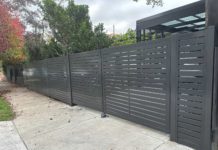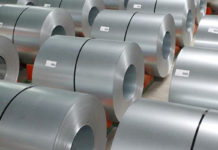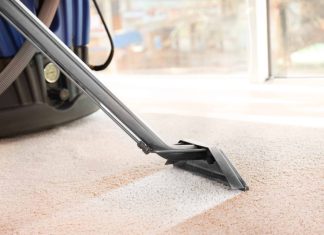The roof is an integral part of any home or building, and the choice of materials for a roof must consider many factors, including climate. The climate can vary greatly depending on the region, with some areas experiencing both intense heat and humidity in summer while others are cooler, with less humidity. Knowing how different roof types will perform in each climate can help you make an informed decision that will provide the most protection for your home or building. In this article, we will look at how climate can affect your roof choices in New Jersey. Read on!
#1. Temperature
One of the most important considerations when selecting a roofing material is its ability to withstand extreme temperatures. Roofing materials must withstand temperatures as low as -10 degrees Fahrenheit and as high as 100 degrees Fahrenheit without suffering any damage or becoming brittle.
Asphalt shingles and metal roofing are two of the most common materials used on residential and commercial roofs, and both can withstand extreme temperatures. Asphalt shingles, for example, are designed to expand and contract with temperature changes, while metal roofing can provide better insulation against heat and cold.
#2. Humidity
High humidity levels can also affect a roof’s longevity and performance. Summertime humidity levels can reach as high as 80 percent, putting a strain on roofing materials. Asphalt shingles, for example, may absorb moisture and swell in humid conditions, leading to premature aging. However, metal roofing can be a better choice in humid climates due to its ability to shed moisture and resist corrosion.
Other materials, such as wood and clay tile, can also be affected by high humidity levels. Wood is prone to warping and cracking in humid climates, while clay tile can absorb moisture and become brittle over time. So, it’s essential to keep the humidity in mind when selecting a roofing material for your home or business.
#3. Precipitation
Another vital factor to consider when choosing a roof is the amount of precipitation in New Jersey. The state receives an average of 56 inches of rainfall annually, with intense storms occurring throughout the year. Roofing materials must withstand heavy amounts of rain without leaking or deteriorating in quality.
Roofs such as metal and asphalt shingles can be effective in areas with high amounts of rainfall, as they are designed to shed water quickly and resist corrosion. Clay tile is also a popular choice in areas with high rainfall, as it is highly resistant to water damage. But the best option for a high-rainfall area is often tile or slate, as they provide superior water resistance and are highly durable.
#4. Wind
The wind is another factor that affects the performance and durability of a roof. Strong winds can cause shingles or tiles to tear off, while high wind speeds can also lift the edges of asphalt shingles and expose your home to water damage! In New Jersey, where it is not uncommon for winds to exceed 50 mph, it is vital to use a roofing material that can withstand these conditions.
Metal roofing is often the best choice for areas exposed to strong winds, as it is much more resistant to damage than other materials. Clay tile is also a good option in areas with high wind speeds, as it is incredibly durable and provides superior protection against water damage. Moreover, asphalt shingles may not be the best option in areas with high winds, as they are more prone to damage and can often be lifted by strong gusts.
#5. Sun Exposure
Finally, the amount of sun exposure is another crucial consideration when selecting a roofing material. Areas exposed to direct sunlight for long periods can experience greater levels of temperature and humidity, which can put additional strain on roofing materials.
Most commercial and residential roofs are designed to deflect the sun’s rays, but some materials, such as asphalt shingles, can break down over time due to UV degradation. On the other hand, metal roofing is an excellent choice for areas with high levels of sun exposure, as it can reflect sunlight and help reduce cooling costs.
In conclusion, climate can significantly impact your roofing choices. When selecting a roofing material for your home or business, it is crucial to consider factors such as temperature, humidity, precipitation, wind, and sun exposure. A professional roofing business like Mighty Dog Roofing Whippany in New Jersey can provide guidance and recommendations on the best materials for your local climate. With a better understanding of these factors, you can make an informed decision that will help ensure the longevity and performance of your roof!














